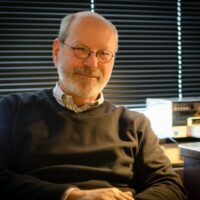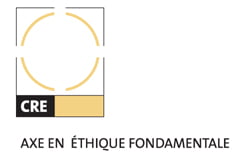
Elliott Sober (University of Wisconsin-Madison)
2021 Hugues-Leblanc lectures
14-16 April – Philosophy department, UQAM
Guest speaker: ELLIOTT SOBER (University of Wisconsin-Madison)
Elliott Sober will deliver three lectures on the theme: PUTTING PROBABILITY TO WORK IN PHILOSOPHY OF SCIENCE
« Ockham’s Razor »
Wednesday, April 14th, 15:30-17:00 (Eastern Standard Time)
Commentator: Molly Kao (Université de Montréal)
Abstract: Ockham’s razor says that simpler theories are better than theories that are more complex, but what does “better” mean? The question isn’t whether simpler theories are easier to understand and work with, nor is the question whether simpler theories are more beautiful. Rather, the question is why the simplicity of a theory is relevant to saying what the world is like. Here I describe two “parsimony paradigms” that establish how simplicity can be relevant to that endeavor.
« Realism, Empiricism, and Instrumentalism »
Thursday, April 15th, 15:30-17:00 (Eastern Standard Time)
Commentator: Christophe Malaterre (UQAM)
Abstract: Scientific Realism says that an attainable goal of science is to figure out which theories are true in what they say about observable and unobservable features of reality. Empiricism says that the goal is more modest – to find theories that are empirically adequate, meaning that they are true in what they say about observables. Instrumentalism says that scientific theories are merely useful instruments for making accurate predictions. Are empiricism and instrumentalism different? Here I discuss arguments that aim to justify or discredit each of these three philosophies.
Wednesday, April 14th, 15:30-17:00 (Eastern Standard Time)
Commentator: Molly Kao (Université de Montréal)
Abstract: Ockham’s razor says that simpler theories are better than theories that are more complex, but what does “better” mean? The question isn’t whether simpler theories are easier to understand and work with, nor is the question whether simpler theories are more beautiful. Rather, the question is why the simplicity of a theory is relevant to saying what the world is like. Here I describe two “parsimony paradigms” that establish how simplicity can be relevant to that endeavor.
« Realism, Empiricism, and Instrumentalism »
Thursday, April 15th, 15:30-17:00 (Eastern Standard Time)
Commentator: Christophe Malaterre (UQAM)
Abstract: Scientific Realism says that an attainable goal of science is to figure out which theories are true in what they say about observable and unobservable features of reality. Empiricism says that the goal is more modest – to find theories that are empirically adequate, meaning that they are true in what they say about observables. Instrumentalism says that scientific theories are merely useful instruments for making accurate predictions. Are empiricism and instrumentalism different? Here I discuss arguments that aim to justify or discredit each of these three philosophies.
« Values in Science »
Friday, April 16th, 15:30-17:00 (Eastern Standard Time)
Commentator: Matthew Barker (Université Concordia)
Abstract: It is obvious that scientists, like everyone else, should take morality into account in deciding what to do, but are ethical considerations relevant to what they should believe? Blaise Pascal’s Wager and William James’s Will to Believe provide an introduction to thinking about this question. I then consider Richard Rudner’s article “The Scientist qua Scientist Makes value Judgments,” where it is argued that the ethical consequences of believing a theory need to be considered in deciding whether you should believe it. Finally, I consider relatively new ideas in statistics that describe a context in which the goals of scientists are relevant to the question of which estimation procedure should be used.
Friday, April 16th, 15:30-17:00 (Eastern Standard Time)
Commentator: Matthew Barker (Université Concordia)
Abstract: It is obvious that scientists, like everyone else, should take morality into account in deciding what to do, but are ethical considerations relevant to what they should believe? Blaise Pascal’s Wager and William James’s Will to Believe provide an introduction to thinking about this question. I then consider Richard Rudner’s article “The Scientist qua Scientist Makes value Judgments,” where it is argued that the ethical consequences of believing a theory need to be considered in deciding whether you should believe it. Finally, I consider relatively new ideas in statistics that describe a context in which the goals of scientists are relevant to the question of which estimation procedure should be used.
INFORMATION/REGISTRATION
Organization: Christophe Malaterre (malaterre.christophe@uqam.ca)
All three lectures will take place on Zoom. Please note that the lectures will be delivered in English. They will also be recorded. You will have the possibility to deactivate your camera at all times.
Registration (required): https
ABOUT ELLIOTT SOBER
Elliott Sober is Wiliam F. Vilas Research Professor and Hans Reichenbach Professor in the department of philosophy at University of Wisconsin-Madison. His areas of research are philosophy of science and philosophy of evolutionary biology. He is renowned in particular for his groundbreaking work on parsimony in connection with theory evaluation, and his numerous contributions to the philosophy of biology. He also has written about evidence and probability, scientific realism and instrumentalism, laws of nature, the mind-body problem and naturalism. His publications include Ockham’s Razors — A User’s Manual (Cambridge University Press, 2015), Did Darwin write the Origin Backwards? (Prometheus Books, 2011), Evidence and Evolution — the Logic Behind the Science (Cambridge University Press, 2008), Unto Others — The Evolution and Psychology of Unselfish Behavior (with David Sloan Wilson, Harvard University Press, 1998) and Philosophy of Biology (Westview Press, 1993).
Elliott Sober is Wiliam F. Vilas Research Professor and Hans Reichenbach Professor in the department of philosophy at University of Wisconsin-Madison. His areas of research are philosophy of science and philosophy of evolutionary biology. He is renowned in particular for his groundbreaking work on parsimony in connection with theory evaluation, and his numerous contributions to the philosophy of biology. He also has written about evidence and probability, scientific realism and instrumentalism, laws of nature, the mind-body problem and naturalism. His publications include Ockham’s Razors — A User’s Manual (Cambridge University Press, 2015), Did Darwin write the Origin Backwards? (Prometheus Books, 2011), Evidence and Evolution — the Logic Behind the Science (Cambridge University Press, 2008), Unto Others — The Evolution and Psychology of Unselfish Behavior (with David Sloan Wilson, Harvard University Press, 1998) and Philosophy of Biology (Westview Press, 1993).
ABOUT THE HUGUES LEBLANC LECTURES
The annual Hugues-Leblanc lectures honor the memory of the great logician and philosopher Hugues Leblanc of Québec (1924-1999). Taking place over three days, this event is organized around a series of lectures delivered by an internationally renowned speaker and commentaries by Canadian or foreign professors on a theme relevant to analytic philosophy.
The annual Hugues-Leblanc lectures honor the memory of the great logician and philosopher Hugues Leblanc of Québec (1924-1999). Taking place over three days, this event is organized around a series of lectures delivered by an internationally renowned speaker and commentaries by Canadian or foreign professors on a theme relevant to analytic philosophy.
This event is organized with the support of the department of philosophy at UQAM, Canada Research Chair in Philosophy of the Life Sciences, Centre interuniversitaire de recherche sur la science et la technologie (CIRST) and the Montreal Philosophy of Science Network.



